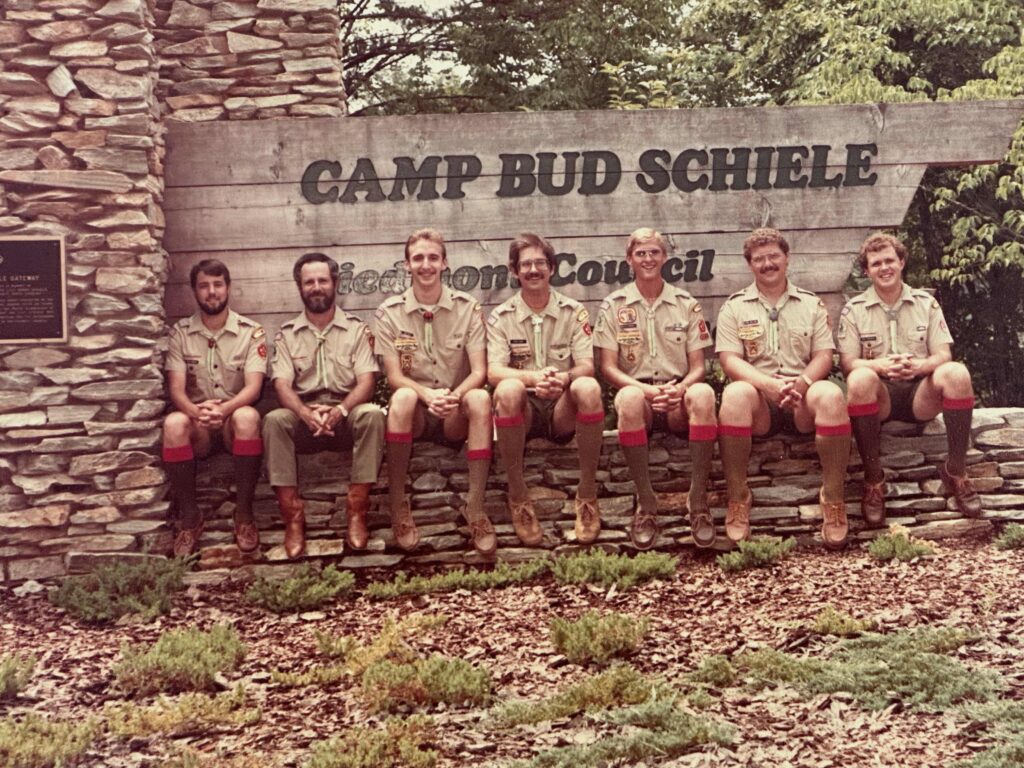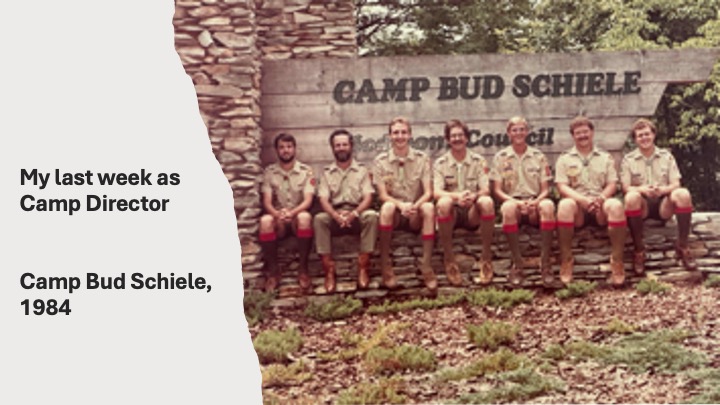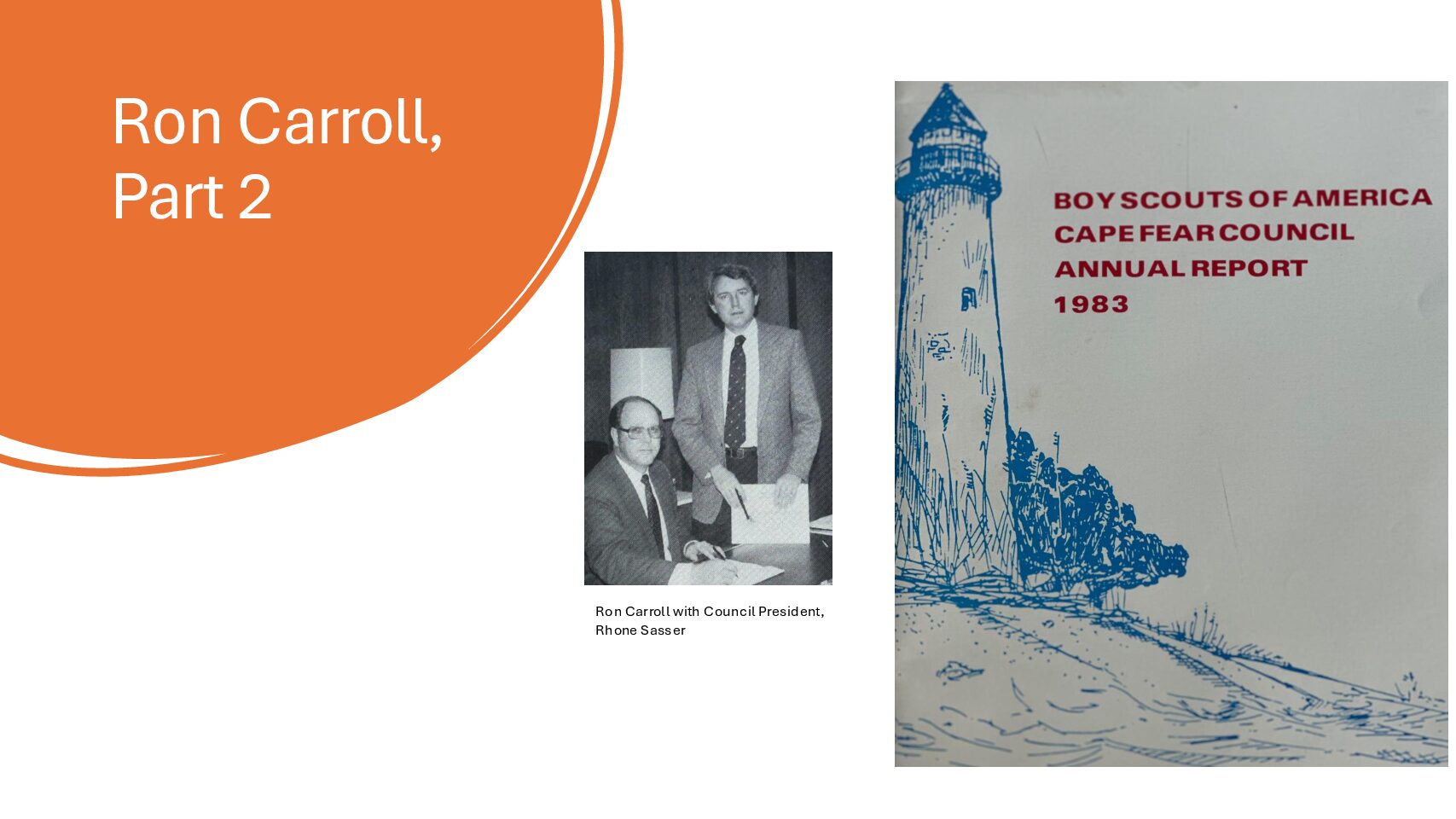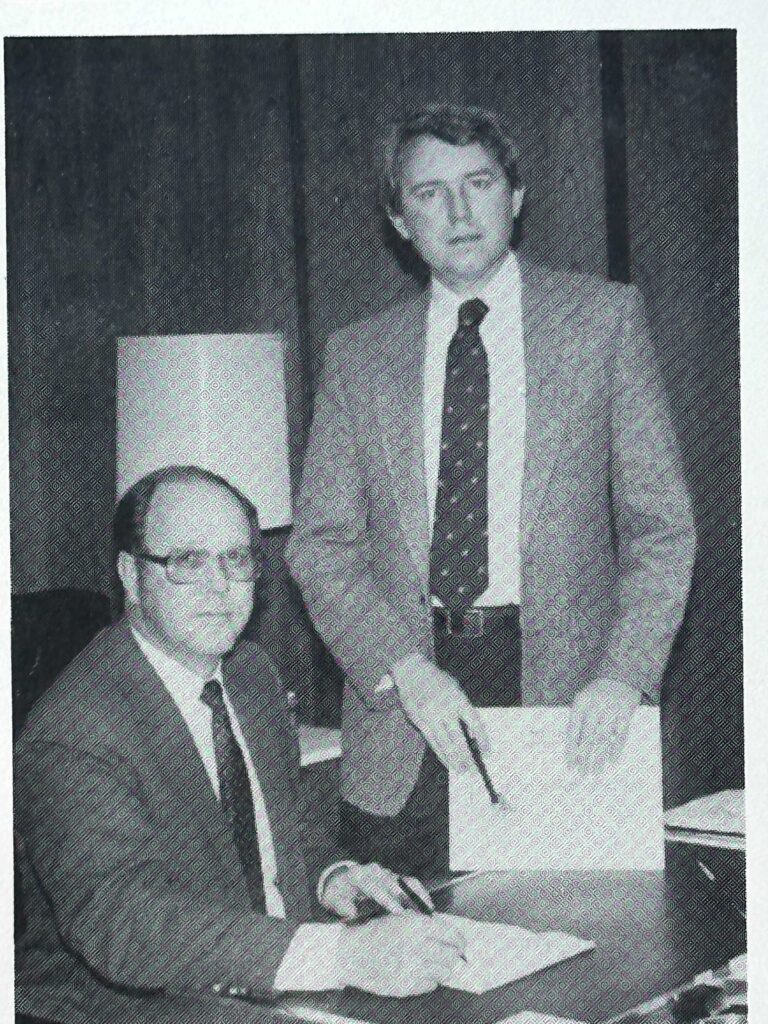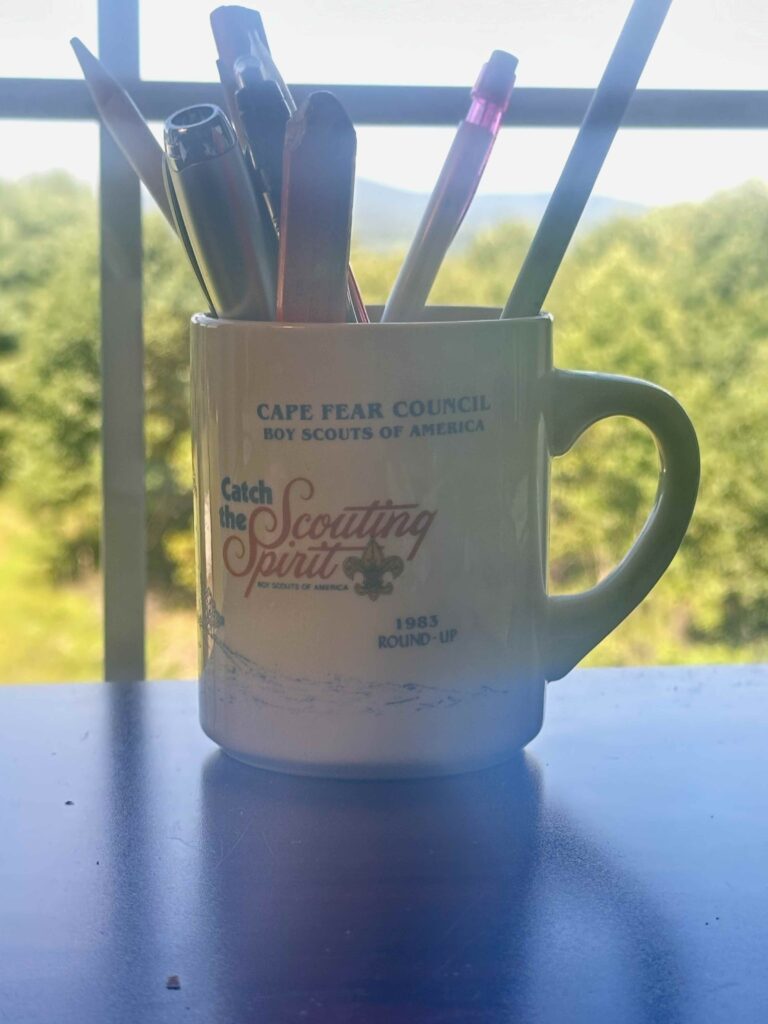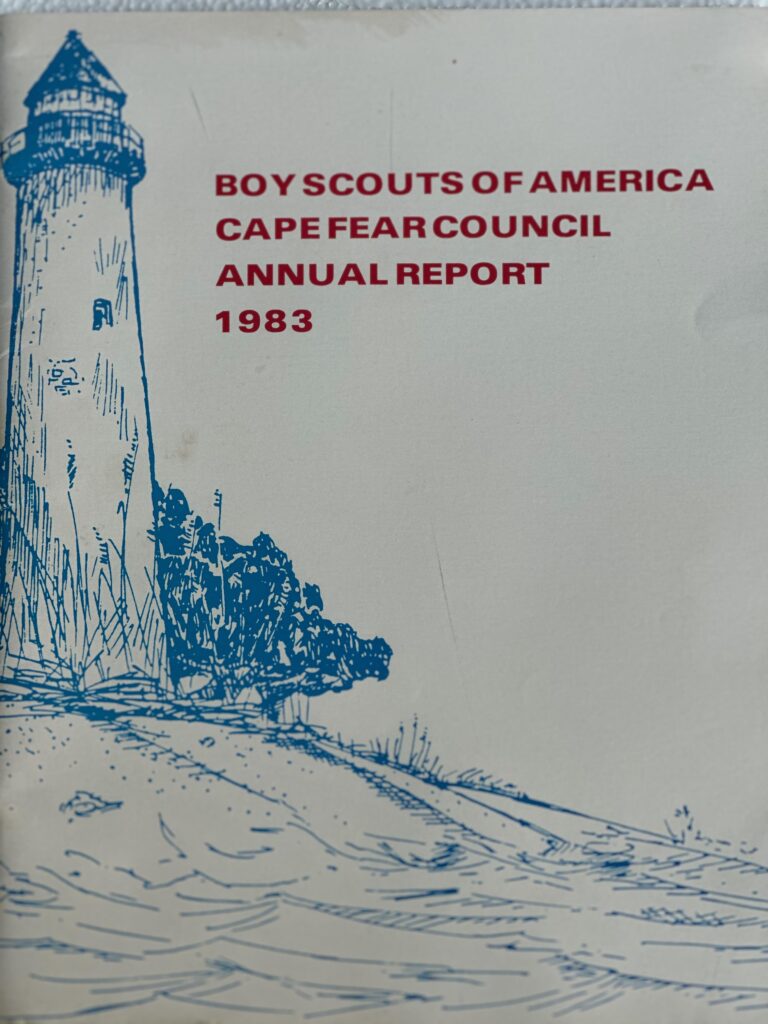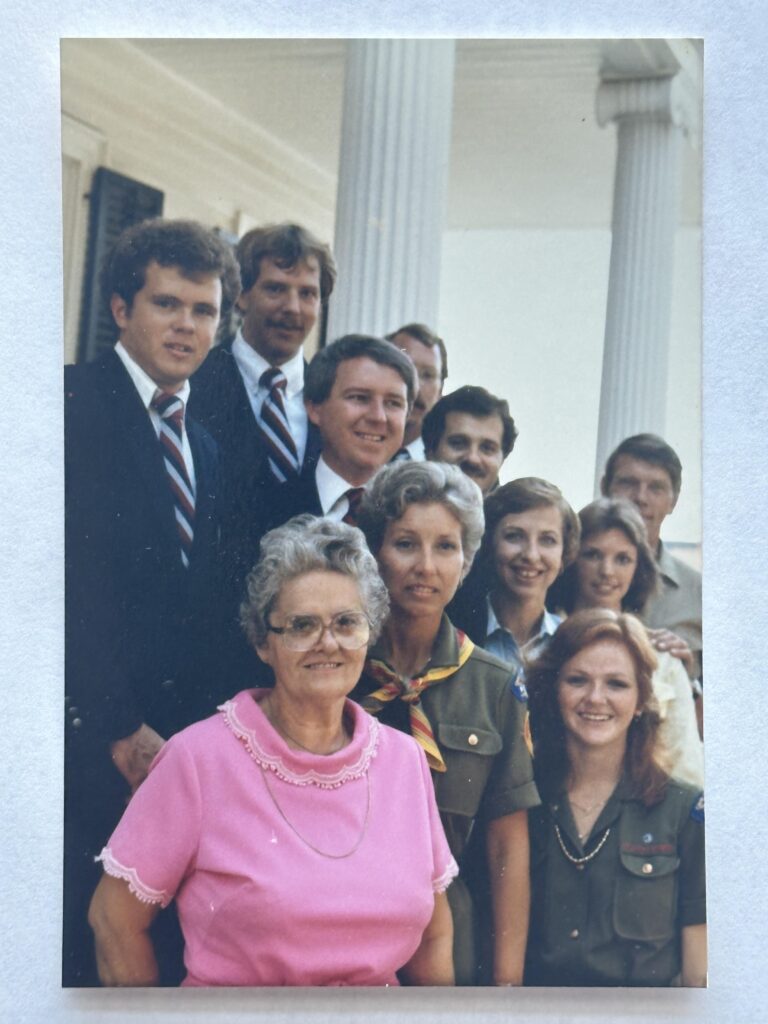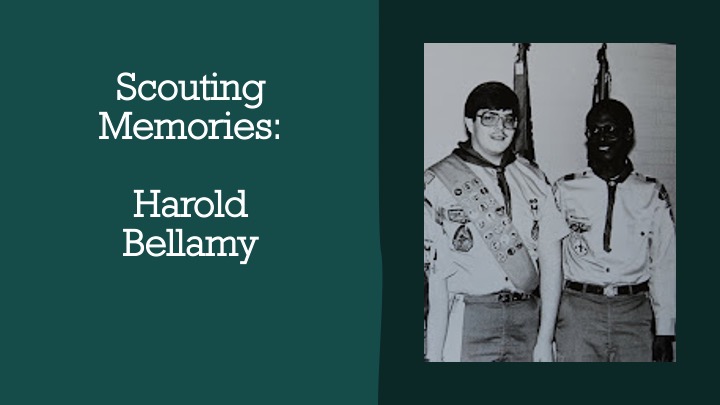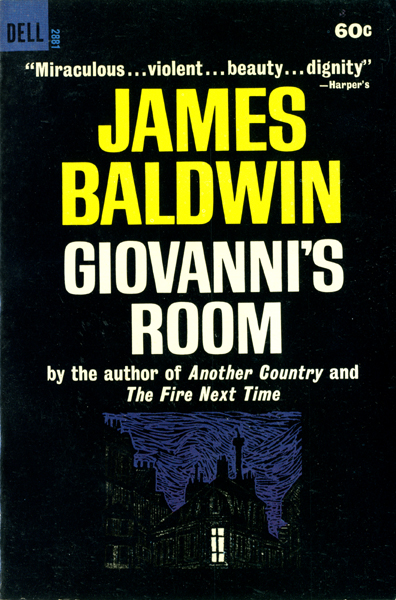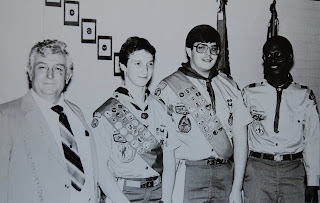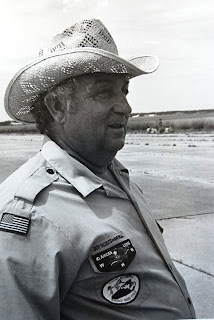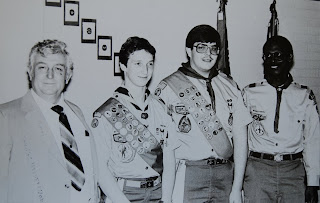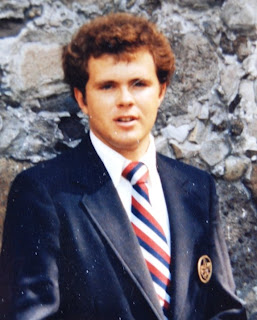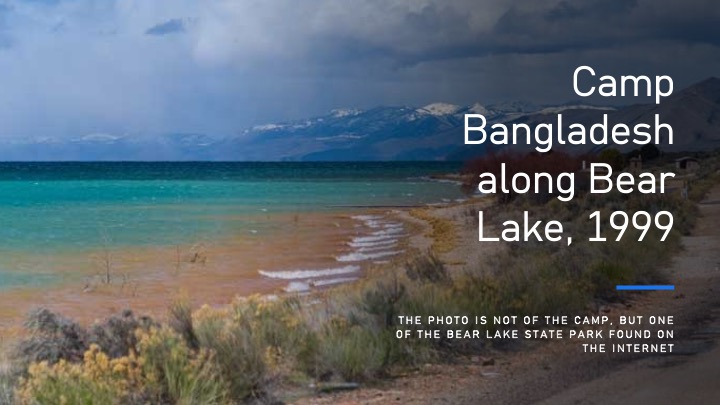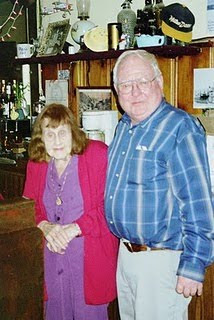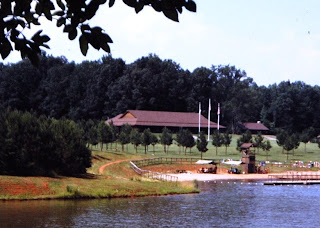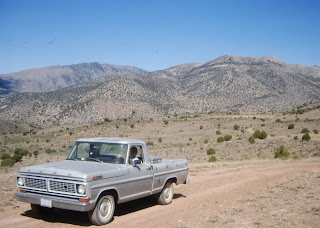The wasp
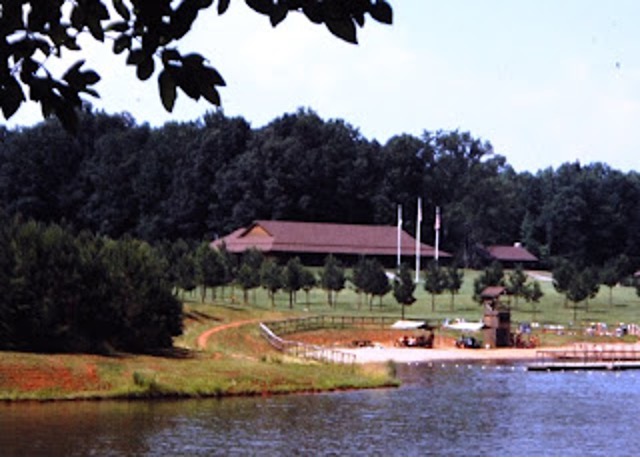
The summer had been incredible. And the last week of camp started off smoothly. My staff had all reported back on time and most of the troops had checked in by mid-afternoon on Sunday. A little after four, I headed over to the dining hall to check on dinner. At six, they’d be serving nearly 500 scouts, leaders and staff. Sunday night was always a good meal: baked chicken, whipped mashed potatoes with gravy, vegetables, yeast rolls and cobbler for dessert. I could smell the food as I neared the dining hall. I cut around the back, to enter through the kitchen entrance. Passing the dumpsters, something bumped into my eye. Immediately I felt the sting. I slapped my forehead, killing a wasp.
They say bad things come in threes. I should have gone out right then and found a rock to hide under to wait out the Apocalypse.
Up until my encounter with a wasp, it had been a wonderful summer at Camp Bud Schiele. The camp, in only its second year of operation, looked like a country club. The rolling grassy hills surrounded a lake which offered swimming, canoeing and sailing, fishing and waterskiing. I had a terrific staff. The first seven weeks had gone off without a hitch.
After this week, we’d store away tents and gear. The week after that, I’d be in Damascus, Virginia, ready for a two-week hike along the Appalachian Trail.
The cooks assured me that dinner would be on time. I got a piece of ice to hold against the wasp sting and headed back to the camp office. By the time of our staff meeting that night, my right eye had swollen shut. There, before me, stood my staff. Every one of them sat with their right eye closed. I wish I felt it was out of sympathy, but I know mockery when I see it.
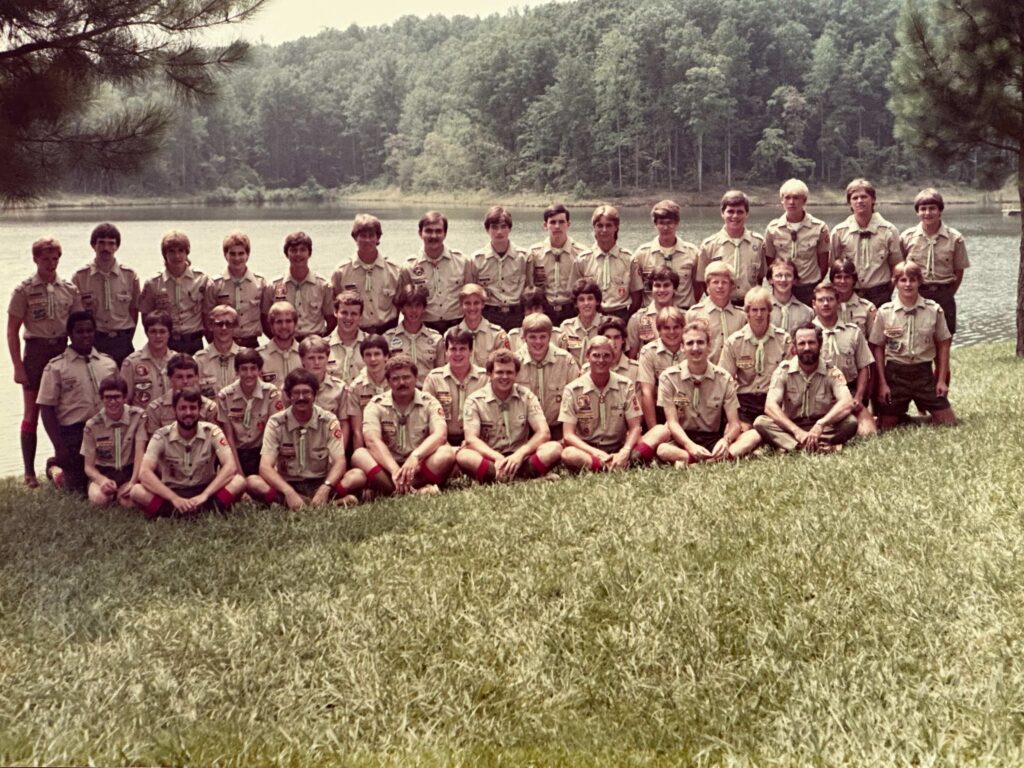
The Forger
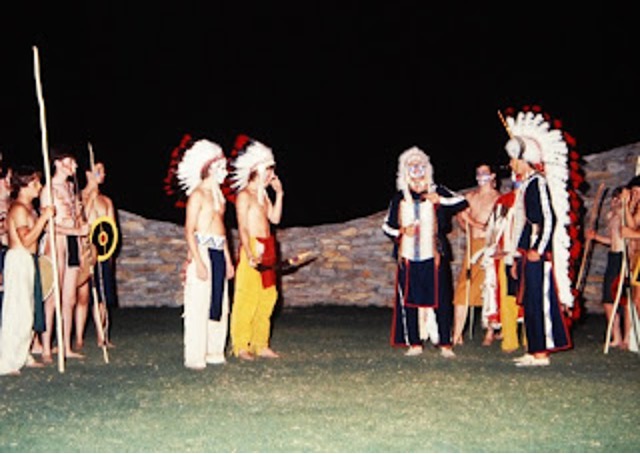
After Sunday, things slipped back into a regular routine. By mid-week, the swelling had gone down and I’d forgotten about the wasp. The council camp had a tradition going back generations where the camp staff produced a pageant for campers and their families on Wednesday night. It was convenient to do this middle of the week; visiting parents always recharged the son’s wallets which helped our trading post make a good profit. The pageant itself was quite a feat, as the staff dressed up as Native Americans and told some legendary story about natives in Western North Carolina. No one seemed to bothered that the staff dressed like Plain’s Indians, right off a Hollywood movie set. As camp director, I’d spent the evening greeting parents and talking up the scouting program.
A few minutes before the final show of the summer began, my business manager ran up to me and said there was someone in the office who needed to see me. I walked over and met the man who ran a small country store and gas station a few miles away. He wasn’t too happy. He showed me a check written by one of my staff members. The check was written on a closed account.
Todd, the staff member, who had been in uniform, told the man the check belonged to his mother and she had given it to him, pre-signed, so he could get gas and some snacks. The store accepted it, after writing the guy’s name and driver’s license number on the check. As country stores often did, he counter signed the check over to the bread delivery man. The only problem was, the check didn’t belong to the guy’s mom, but to another woman, the sister of a friend. When the check was denied for payment, the bread company had charged the store an extra fine. The store owner had called the woman whose name was on the checks. He learned the checks had been stolen. There had been a number of checks written on this account, which had been closed, across a three-county area. She also informed him there were a half-dozen warrants out for the guy’s arrest.
Honorably discharged after four years serving in the Marine Corp that May, Todd came with good references. His age was another asset. There were many positions he could serve by being over 21. Todd became an assistant field sports director, running the rifle range. For a couple weeks, he also served as a provisional scoutmaster, working with those scouts who came to camp without a troop. I’d been pleased with his work.
Unlike a lot of my staff, Todd always had clean uniforms, which I later learned was because he’d brought four sets of them with a check “which his mother had given him so he could buy uniforms.” As it turned out, even his uniforms were stolen. He purchased them through forgery. Although I didn’t want a sheriff cruiser flying into camp with their lights flashing to arrest a staff member, I also felt I needed to get Todd out of camp. Although I didn’t think he’d do anything, I felt it was a liability to have a staff member working with kids with that many felonies on his head.
I asked the local sheriff if they could wait till ten o’clock. The camp ranger (who was deputized because of the amount of land he managed) and I would detain Todd in my office until then. By ten, all the parents would have left, and the scouts would be back in their campsites. Then, in private, we could hand Todd over to a local sheriff deputy. They would hold him until the sheriff of Catawba County picked him up.
I made arrangement for my program director to take over the staff meeting we always held on Wednesday night and asked him to keep the staff together until I came back to talk to them. With Tony, the camp ranger by my side, I asked Todd to come with me to my office.
It was a long walk through the night. Once inside the office, I told him what was up. Todd was a big guy, probably 6’3” with broad shoulders, about the size of Tony and I put together. Afraid of what he might do, he shocked both of us by sitting down in a chair and crying. Tony offered him a cigarette. I decided not to insist he not smoke in my office. He took one (I’d never seen him smoke) and with tears in his eyes asked what was going to happen to him. I told him didn’t know, but I knew there were several warrants out for his arrest and that forgery was serious business.
The deputy arrived right at ten and arrested Todd. I felt sorry for him, as he was handcuffed. I told him we’d pack up his stuff and keep it safe and then went over to the dining hall where the staff was sitting around waiting. They knew something was up and were visibly shaken, for Todd had been a likable guy. The next day, Tony and I went through Todd’s stuff, inventorying it all and boxing it up and storing it in his car. A few days later, his parents came down and picked up his car and drove it home.
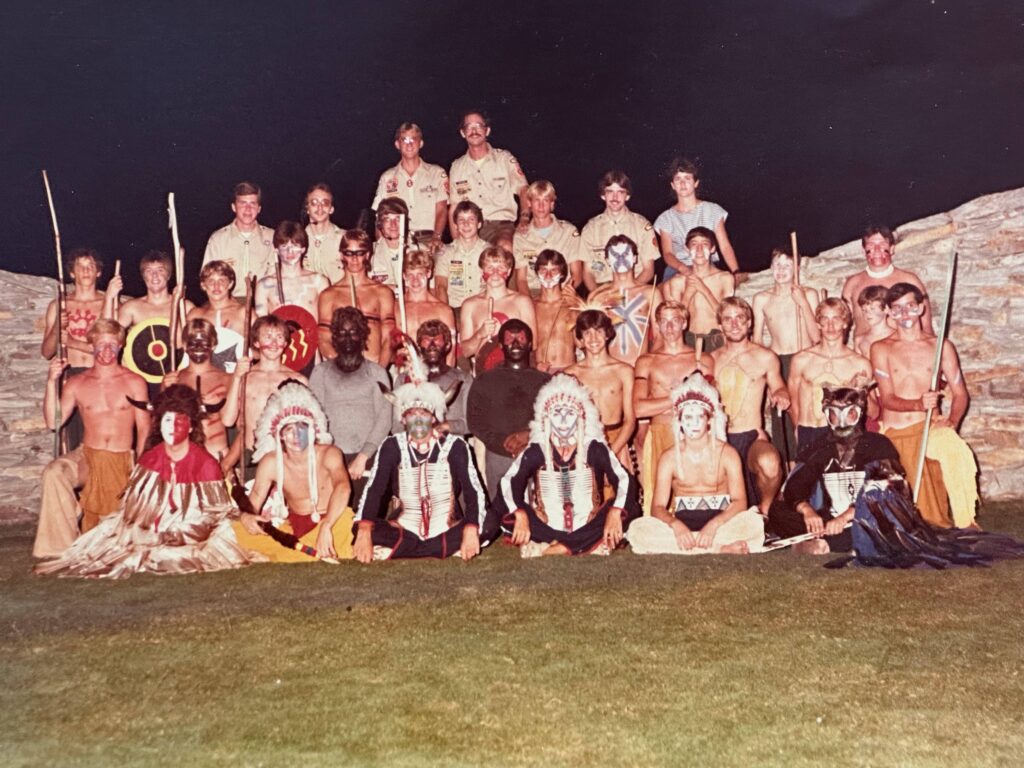
An indecent photograph

I’d had enough excitement for one summer. But the week wasn’t over. On Friday, as I was trying to finish up paperwork in my office, the mother of a camper who’d been at the camp a few weeks earlier came by. Like the store owner, she too wasn’t happy. She dropped an X-rated photograph on my desk, one that had come from her son’s camera. I could have gone all summer without seeing that. Her son swore to her that he had no idea where the picture came from, but looking at it, I knew right away who to ask.
I called for the waterfront director. When he entered my office, I showed him the picture of someone’s privates, with a bathing suit pulled down. The director recognized the bathing suit and sent for two staff members. He had quickly figured out what had happened.
As the scouts checked into the waterfront, there was a place where they could ‘check” valuables, things which shouldn’t get wet, like wallets and cameras. The staff member in question had seen this camera and he, and another staff member, decided it would be funny to take a pornographic photo on some unsuspecting kids’ camera. The staff member responsible for checking in valuables had taken the photo and another waterfront staff, with the bright red striped bathing suit, served as the model.
Although I knew it was just a childish prank, the Scouts have strict rules on such behavior. I found myself having the privilege of firing two more staff members. Like Todd, both were well-liked and hard workers. The rest of the staff were angry at my decision, especially since it there was only one more day of camp left. They were particularly mad that I didn’t allow them to attend the closing banquet we held at the end of the next week, after closing down the camp for winter. At least the model in the photograph must not have been too mad with me, for the next year when he graduated from college, he called to ask me to be one of his references.
It had been such a nice summer. I enjoyed everything the camp had to offered: swimming, water skiing, sailing, canoeing, and fishing. But after that last week, I was never so glad to head off for a two-week hike in Southern Virginia.
Other Scouting Stories:
